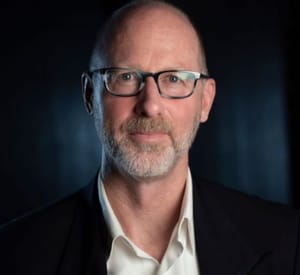I recently returned from a five-day trip to Colorado, where I attended a conference for 700 people. From beginning to end, I never saw even one person there wearing a mask—not one. I also found all the attendees to be exceptionally welcoming, friendly, and curious. They expressed a sincere interest in learning and sharing. They wanted to develop themselves intellectually, and they sought out others to build new relationships based on shared values.
In contrast, back here in Los Angeles, where I live and work, everyone is still wearing masks indoors. Approximately 80% of Los Angelenos still wear face-diapers while outside, even while driving alone in their car or riding their bicycle to work. As I left a gym today, I overheard a masked woman at the check-in desk say to the girl behind the counter, “I really like your mask!” I froze in place as I let the words sink in. They nauseated me. This woman was making a fashion comment about a medical device forced upon a worker whom I know personally, someone who despises being forced to cover her face. I would have felt the same way if I had heard her say, “I really like your handcuffs.” I turned to the woman and said, “I really like her face. Unfortunately, she isn’t allowed to show it to people anymore.” On my way to the car, I considered what I had just witnessed: the display of a sick, perverse fetish over a dirty and dehumanizing practice that assaults our most fundamental social expression—showing our faces to one another.
I considered the distinctions in character and personality between the group I had attended the conference with and those who live in Los Angeles. Nearly universally, I found the maskless conference attendees to be courageous, mature, wise, kind, generous, and principled. Mask-wearing residents of my hometown, on the other hand, appear largely cowardly, callous, naïve, narcissistic, and emotionally immature. I began to wonder if the latter group of universal maskers has always been this way but was simply better at hiding it, until they all adopted face-diapers as their social insignia. For many years, I have felt a degree of unease in my interactions with locals in Los Angeles. Most conversations are superficial here, though, so very little of a person’s unique qualities is ever revealed through casual encounters.
When I evaluate a patient in my practice, it is largely through an in-depth and lengthy conversation—a clinical assessment—that I am able to determine the presence and severity of a mental illness. Unlike a social chat, during a psychiatric assessment no question is off-limits. In order to properly diagnose and treat someone who is suffering from an emotional or mental disability, I need to know what is hidden. Patients come for help, so they are nearly always willing to share their secrets with me in exchange for a sincere effort on my part to understand them and offer a treatment that might alleviate their suffering. Often, there is shame or embarrassment involved in doing that. There is also a reward—feeling better.
With the advent of the mask craze, mental illness is no longer invisible in the public space. What was once reserved for only a psychiatrist’s ears is now on flagrant display to any citizen with eyes to see it. When I see a man jog past me with a piece of cloth tied around his nose and mouth, I don’t need to speak to him to know that he is mentally ill. When I see a woman sunbathing in the park in a two-piece bikini with a diaper lying on her face, no conversation is necessary—she is sick. To learn this is both disheartening and liberating. As I discover that 80% of the people who inhabit my city are mentally unwell, I feel sad. With that discovery comes a new freedom, though, to efficiently filter out those with limited functioning, so that I no longer waste time or suffer frustration over failed expectations of normalcy with those who simply lack that fundamental capacity to be normal. This has been a reality check, but, as I often say, to live an honest and healthy life, we must live in reality.
The mask mandates will soon end. The cowardly yet otherwise emotionally healthy will then largely abandon the despicable “face-coverings.” Others will not, at least not at first. Some may never leave their homes without them. Regardless, the mental illness and character flaws that drove this sick practice will remain. I often speak and write about the damage that masks have wrought on society, but they have also revealed a fundamental decay in the psychological health of Americans, especially those living in cities. Let’s not pretend that by tossing the masks in the garbage—where they belong—we will be solving the problem. As much as masks drive a degradation of individual social interaction and of society at large, they also serve as a visible reminder of pre-existing mental illness that we must begin to address. The end of the mandates is only the beginning of the road to recovery.
Mark McDonald, M.D.
Psychiatrist and author of United States of Fear: How America Fell Victim to a Mass Delusional Psychosis








Member discussion